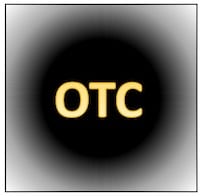CHENGDU, CHINA – in the Sichuan province of southwestern China, a group of 30 professional ear cleaners are campaigning for the government to recognize their centuries-old trade as an Intangible Cultural Heritage, according to a recent report by the Daily Mail and People’s Daily.
The traditional practice of ear cleaning, a practice that has been conducted for hundreds of years, is particularly prevalent in this area of China. Both locals and tourists alike flock each day to their favorit local ear cleaning salons or street corner practitioner.
With an assortment of tools, and often equipped with a headlamp, ear cleaning professionals work carefully while their clients often relax and sip tea.
Being Recognized
Ear cleaning masters say the government recognition of their trade is important because the extensive training required to become a professional ear cleaner has deterred many from becoming a part of the industry in recent years.
Currently, China is home to 38 recognized intangible cultural heritage elements inscribed by UNESCO. Included among China’s currently recognized unique cultural traditions are things such as Chinese Calligraphy, Tibetan Opera, Chinese Shadow Puppetry and the Dragon Boat Festival.
Intangible Cultural Heritage is defined as the practices, representations, expressions, knowledge, skills – as well as the instruments, objects, artifacts and cultural spaces associated with communities, groups and, in some cases, individuals recognize as part of their cultural heritage. This intangible cultural heritage, transmitted from generation to generation, is constantly recreated by communities and groups in response to their environment, their interaction with nature and their history, and provides them with a sense of identity and continuity, thus promoting respect for cultural diversity and human creativity. {{1}}[[1]]According to the 2003 Convention for the Safeguarding of the Intangible Cultural Heritage[[1]]
Cultural Differences
While the very idea of professional ear cleaning salons and street vendors strikes the Western mind as incredibly strange, or perhaps even repulsive, it is not uncommon in Asia.{{2}}[[2]]See the 2011 post from Hearing International regarding wax removal in Japan: Can Cerumen Removal Be an Erotic Experience?[[2]]{{3}}[[3]]Ear cleaning is sometimes referred to as ear massage due to stimulation of acupressure points in the ear during the cleaning process[[3]]
In fact, there is still a widely held belief in China that there are three practices needed to live a long and healthy life: bathing, foot massage and, believe it or not, ear cleaning.
Source: Daily Mail, People’s Daily
*Images Courtesy wikimedia commons and tripadvisor








